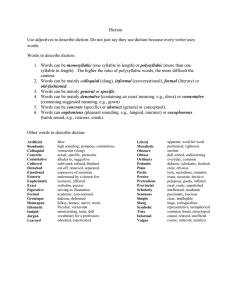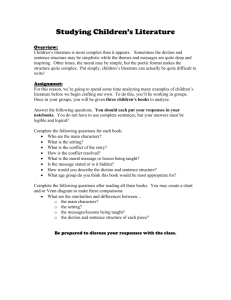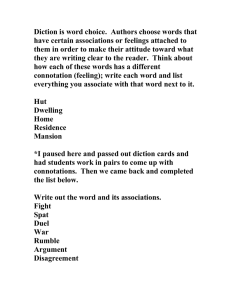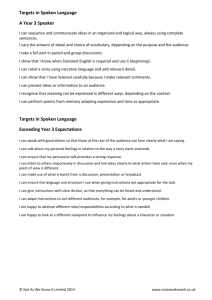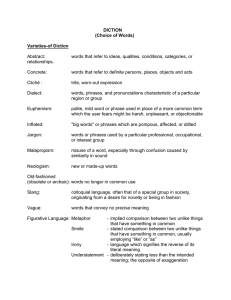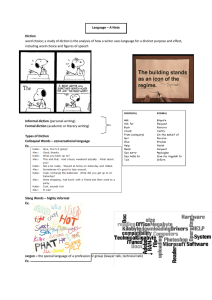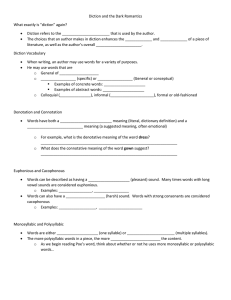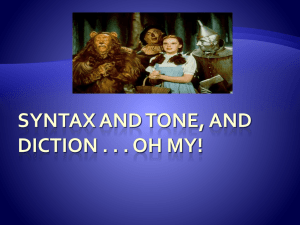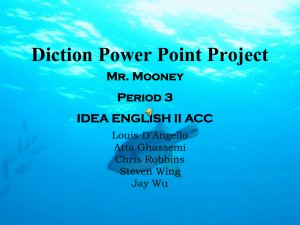What is Diction?
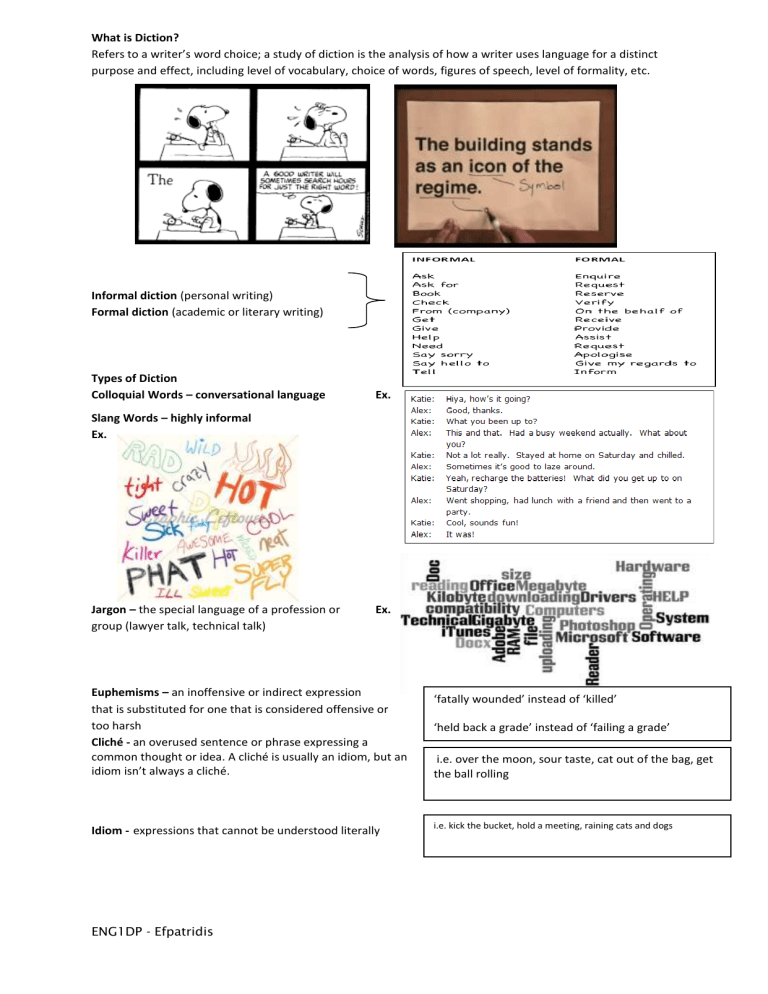
What is Diction?
Refers to a writer’s word choice; a study of diction is the analysis of how a writer uses language for a distinct purpose and effect, including level of vocabulary, choice of words, figures of speech, level of formality, etc.
Informal diction (personal writing)
Formal diction (academic or literary writing)
Types of Diction
Colloquial Words – conversational language Ex.
Slang Words – highly informal
Ex.
Jargon – the special language of a profession or Ex. group (lawyer talk, technical talk)
Euphemisms – an inoffensive or indirect expression that is substituted for one that is considered offensive or too harsh
Cliché - an overused sentence or phrase expressing a common thought or idea. A cliché is usually an idiom, but an idiom isn’t always a cliché.
Idiom expressions that cannot be understood literally
ENG1DP - Efpatridis
‘fatally wounded’ instead of ‘killed’
‘held back a grade’ instead of ‘failing a grade’
i.e. over the moon, sour taste, cat out of the bag, get the ball rolling i.e. kick the bucket, hold a meeting, raining cats and dogs
CHARACTERIZING DICTION
Examples of General Language: look, walk sit, cry, throw, dog, boy
Examples of Specific Language: gaze, stride, slump, weep, hurl, black Labrador Retriever, tall boy
Monosyllabic words – single syllable words; for example: CAT (one beat)
Polysyllabic words – more than one syllable in a word: rancid; Microsoft (2 beats; 3 beats)
THE GREATER THE NUMBER OF POLYSSYLLABIC WORDS, THE MORE COMPLEX THE PASSAGE
All words have a denotative meaning and connotative meanings.
Police office – denotation- is the dictionary meaning
-connotation – emotional meaning; multiple references
Cacophonous Words: harsh sounding words (maggot)
Euphonious Words: pleasant sounding words (butterfly)
Abstract Words: not material – these words represent a thought (pleasant taste)
Concrete Words: real or actual; specific, not general (sour tasting)
Abstract Painting
Picasso
Questions to ponder while analyzing text:
Are the words monosyllabic or polysyllabic?
Is the diction formal or informal?
Is the diction colloquial?
Is the diction slang or filled with jargon?
Is the language concrete or abstract?
At any time during reading, is there a change in the level of diction in the passage?
Diction conveys mood, atmosphere, helps develop character, creates theme, depicts setting, etc.
ENG1DP - Efpatridis
